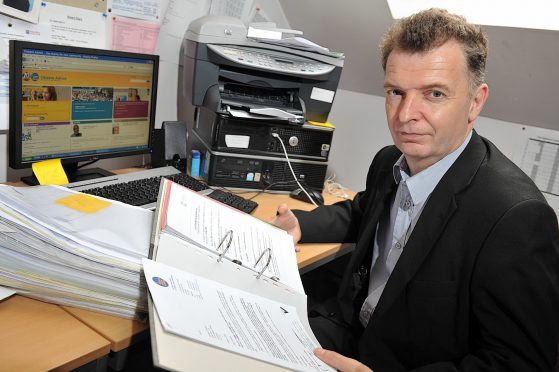Highland Council has dramatically reduced its projection of the impact of the Covid-19 pandemic on its finances from £97 million down to £32 million.
Bosses say the black hole originally predicted was a worst case scenario, taking into account a longer lockdown and a potential second wave of the virus.
The mid-case scenario was always projected to be in the region of £50 million, deputy leader Alasdair Christie said yesterday, and had ‘crystallised’ at £49 million.
With £17 million of government help coming in, the figure to be discussed in full council next week stands at £32 million, with a budget now to be set in September.
SNP opposition leader Ian Cockburn said he wanted to see how the figures were reached.
He said: “The administration has been announcing with great verbosity that it will be in debt this year from somewhere in the region of £47 million to £98 million due to Covid-19, some four-and-a-half times more than any other local authority in Scotland.
“We now have been advised of a new figure of £32 million.
“There is no doubt that due to the pandemic there will be added costs to try to recover but we need to see the ‘workings out’.”
Tory councillor Struan Mackie said the original projection showed Highland alongside huge authorities like Birmingham and Manchester with a potential £100 million black hole.
He said: “It was understandably concerning for council staff and constituents.
“It looked on paper as if the council was facing financial oblivion, and it has been deeply concerning that a significant proportion of council communications have focussed on a narrow set of financial scenarios that had no likelihood of occurring.
“I hope it has not soured relationships with our principal funders as we look to bring out the begging bowl for further financial support.”
Despite the better news, there is no doubt pain is on the way for Highlanders, Mr Christie warned.
He said: “It is still a huge amount of money to find, and there will be some very difficult decisions to be made at the council meeting in September in order to close the gap.
“We can’t assume that income will go back to normal on October 1, so a lot of assumptions will have to be made.
“A lot of the council’s expenditure is on salary-related items and fixed charges such as loan costs, so it’s going to be a combination of many factors to close this budget gap.
“It’s got to be about not hurting people or damaging people who are vulnerable, not making situations worse or negating all the great work done on the recovery aspect of the Highland economy.
“It’s a balancing act and needs to be well thought out.”
